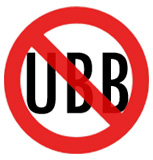Broadband Power for the People?
Posted by Laurel L. Russwurm on March 18, 2011

The Internet Billing Upheaval in Canada
By Arthur Czuma

The year 2011 appears destined for revolutions. As Egyptians, Libyans, and others demonstrate across the Middle East and North Africa, Canadians are unleashing a quieter storm of their own. Hundreds of thousands have signed an online petition that calls for rescinding a new Internet billing policy that would eliminate price caps and bring usage-based charges. Striking the policy would help protect the interests of Canadian consumers – and the government seems to be listening. A senior government official indicated that if the Canadian Radio-television and Telecommunications Commission (CRTC) does not reverse its controversial ruling, then the Cabinet would do so.
New Per-Gigabyte Charges
The policy, which would take effect on March 31, centers on the amount of data that consumers can view or download and for what expense. Not surprisingly, it’s the bigger ISPs that support the new fees supported by the policy. Many have already been charging users in accordance with how much data they access – and now, the new law would have smaller ISPs do the same. That’s because smaller ISPs lease bandwidth from larger telecommunications firms such as Bell Canada, Rogers Communications, and Shaw Communications. Despite their small size, the lesser-known ISPs (Internet service providers) have typically been providing both greater bandwidth and lower fees than have the bigger ISPs such as Bell and TELUS.
Small ISPs Scoff at “Wholesale” Rate

The larger telecom firms are mandated by government to lease their bandwidth to smaller ISPs and resellers. However, until now, they were prohibited from passing per-gigabyte fees on to these customers. The Canadian Radio-television and Telecommunications Commission (CRTC) has attempted to placate small providers by granting them a 15% discount on cable and telecom companies’ retail rates – but the small ISPs are less than impressed with this wholesale rate. In fact, many regard it as just another retail price. From the perspective of small business, the discount is hardly compensation for the new power imbalance: it merely slows the journey toward an Internet oligopoly or monopoly.
The large companies, in turn, cite their right to manage their networks – and they claim that flat-rate Internet pricing is no longer viable. Bell Canada raised the issue in 2009 as iTunes, YouTube, Netflix, and other online video and video game providers contributed to rapid growth in online traffic. But that’s a hard argument to swallow: according to the CRTC’s own data, just as some large providers have been charging for “excessive” traffic for years, smaller ISPs have offered plans with literally hundreds of times the bandwidth, if not unlimited service, at a lower cost.
Canadians Take Action
The question of exactly what is the just balance between fostering competition and granting corporate rights will always be up for debate. For now, however, it seems that Canadians have drawn a line in the sand. In addition to more than 465,000 having signed a “Mind the Cap” petition online, tens of thousands have written to the Minister of Industry to protest the imposition of usage-billed Internet billing. And as back-up, the Canadian Network Operators Consortium, a group of more than 20 ISPs, is considering its legal options if the Conservative government does not revoke the CRTC ruling. A senior official acknowledged that the billing is “a bread-and-butter issue” and would be treated as such.

The Numbers
Many Canadians currently have Internet plans that charge for using an excess of 25 gigabytes per month. That’s equivalent to watching about five Netflix movies or downloading about six video games. It’s certainly not enough for many people’s entertainment needs, nor is it sufficient to help get a small business established or draw innovative services. For instance, a data cap would stymie the expansion of Netflix, the online video company that recently started offering unlimited movie rentals for about C$8 per month.
A Contagious Revolution?
By striking down the decision, the government will enable the small ISPs to remain competitive and thereby help bring a variety of affordable Internet options to Canadians. At the same time, eliminating caps will help attract innovative digital entrepreneurs to the Canadian economy. It’s inspirational – and if US Americans would pay attention, perhaps the Canadian revolution could spread stateside. Regardless of their political stripes, fair Internet pricing is something that just about every consumer can stand for.

About the author
Arthur Czuma is a writer and consultant for several Ontario-based businesses including Distributel, a local ISP.
It’s not over yet.
Usage Based Billing has NOT been cancelled, only postponed.
The CRTC is not doing their job, but rather doing a disservice to Canada.
If you haven’t already, sign the petition. There are only 15027 signatures.
If you have already signed, who else should you be asking to sign?
That’s easy: anyone who uses the Internet.
Because Usage Based Billing will harm not only Canadians, but our Economy.
http://dissolvethecrtc.ca/
You can also call or write your MP, MP postal code look-up
Heritage Minister James Moore – email: Moore.J@parl.gc.ca
Industry Minister Tony Clement – email: Clemet1@parl.gc.ca
Prime Minister Stephen Harper – email: Harper.S@parl.gc.ca
After all, they work for us, don’t they?

STOP Usage Based Billing



 windows7sins.org
windows7sins.org


Links 18/3/2011: Ubuntu 11.10 Release Schedule, OSI Reform | Techrights said
[…] Broadband Power for the People? The larger telecom firms are mandated by government to lease their bandwidth to smaller ISPs and resellers. However, until now, they were prohibited from passing per-gigabyte fees on to these customers. The Canadian Radio-television and Telecommunications Commission (CRTC) has attempted to placate small providers by granting them a 15% discount on cable and telecom companies’ retail rates – but the small ISPs are less than impressed with this wholesale rate. In fact, many regard it as just another retail price. From the perspective of small business, the discount is hardly compensation for the new power imbalance: it merely slows the journey toward an Internet oligopoly or monopoly. […]